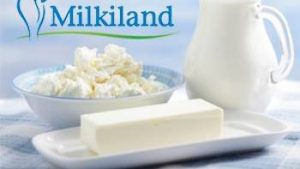
Ukrainian MP Andriy Derkach has made public audio materials that may indicate the influence of ex-Vice President of the United States Joseph Biden on the fifth President of Ukraine Petro Poroshenko. “We will unveil recordings of telephone conversations with voices similar to those of Petro Poroshenko and Joseph Biden, testifying to the facts of international corruption and state treason at the highest state level,” Derkach said during an online conference at Interfax-Ukraine agency on Tuesday.
According to Derkach, he received the recordings from investigative journalists, and Poroshenko personally did the recording of the conversations.
The first topic of the recordings, the deputy noted, concerns the receipt of “$1 billion in exchange for maintaining Burisma schemes and international corruption.” The records, as Derkach notes, date back to 2015-2016, in particular, they refer to the need to dismiss Prosecutor General Viktor Shokin at that time, “who was investigating the Burisma case and tapped into Biden at that time.”
“Biden leaves for Kyiv to put pressure on Petro Oleksiyovych regarding Shokin. There’s a powerful argument … in Biden’s pocket … a $1 billion loan guarantees … such was a price to save Biden from prison,” Derkach said.
The deputy claims that the $1 billion received was used to get military government orders by enterprises related to Poroshenko.
The second topic of the recordings, according to Derkach, concerns the collapse of the parliamentary coalition and the upcoming elections in February 2016. “Poroshenko admits that there is no coalition … instead of fulfilling the requirements of the Constitution and declaring a re-election, Petro Oleksiyovych held to the promises given to Biden personally and blocked the Cabinet’s dismissal,” Derkach explained.
“These conversations clearly show … Biden ruled Ukraine,” the deputy said.
Also, according to him, the audio recordings say about Biden’s influence through the supervisory boards of large state enterprises.
“We handed over all the hours-long records we have at our disposal together with a statement about high treason, as well as of facts of international corruption to the Prosecutor General’s Office … for registering criminal proceedings,” Derkach summed up.
He also added that, in his opinion, Chairman of the Verkhovna Rada Dmytro Razumkov “blocks the creation of the inquiry commission … which is a violation of the law on regulations.” “Such a commission could effectively investigate the facts of international corruption,” Derkach said.
Former prosecutor Kostiantyn Kulyk, who was present at the press conference, added that Ruslan Riaboshapka, when he was the prosecutor general, “completely stopped the investigation of economic crimes of the Yanukovych regime and stopped the $6 billion budget confiscation planned for 2019.”
“A report has been prepared on this fact that Riaboshapka had committed the crimes pursuant to Articles 349, 364 and 365 of the Criminal Code of Ukraine … it is about interference with the activities of a law enforcement officer, abuse of power, exceeding of the limits of authority and disclosure of the secrets of pretrial investigation. I hope that the monitoring over the investigation will be organized by Ukrainian parliamentarians … I consider it necessary to initiate the creation of a temporary investigative commission of the Verkhovna Rada to investigate opposition to the investigation of economic criminal cases of the Yanukovych regime,” Kulyk said.

Nova Poshta Global (NPG), a member of Nova Poshta group of companies, launches scheduled flights from/to the United States and China.
The company’s press service said on Tuesday that flights by the order of Nova Poshta Global will be operated several times a week and deliver both parcels from Ukraine and purchases made by Ukrainians in online stores of these countries.
Together with partners, the company has already launched six scheduled flights, namely, five flights to/from the United States and one to/from China. Four flights in the direction of Warsaw-New York-Warsaw are operated by European airlines Lufthansa and LOT, and one weekly direct flight Kyiv-New York-Kyiv of Ukraine International Airlines (UIA). Nova Poshta Global launched another weekly flight to/from China in cooperation with the Ukrainian company SkyUp.
“We launched scheduled flights with our regular partners Lufthansa, LOT and UIA, and last week we began cooperation with Ukrainian airline SkyUp. The first flight of this airline has already delivered 1,801 parcels for our customers with a total weight of 17 tonnes, including both individual orders and commercial goods. This is only part of the parcels that Nova Poshta Global delivers to Ukraine from China weekly. We deliver on average about 25,000 parcels weighing more than 38 tonnes per week from the United States,” the press service said, citing Nova Poshta Global CEO Yuriy Benevytsky.
According to Nova Poshta Global, orders from the United States increased by 4.7 times in the first quarter of 2020 compared to the same period in 2019, which was due to cooperation with the American online store iHerb, namely, some 230,000 parcels with a total weight of 360 tonnes were delivered from that store for the first quarter of 2020.
According to the data provided, the number of deliveries of NP Shopping service has also increased in particular some 81,000 parcels were delivered in the first quarter, which is 32% more than in the same period in 2019.
However, the company’s customers began not only to order more from abroad, but also to send abroad. Thus, for the first quarter of 2020, the volume of export shipments of individuals increased by 12%, and business customer shipments doubled compared to the same period in 2019. Almost 78% are parcels and goods, some 12% are documents.
Nova Poshta Global (formerly Nova Poshta International) has been providing international express delivery services since 2015, and is part of the Nova Poshta group of companies. Nova Poshta Global is developing the NP Shopping service – the delivery from online stores in the United States, China, Britain and Poland, provides import and export services for businesses and the ability to ship from any Nova Poshta branch to most countries of the world.

Ukraine should re-look at the development of nuclear power generation, including focusing on the implementation of projects that increase the ability to maneuver, acting Minister of Energy and Environmental Protection Olha Buslavets has said.
Commenting on the relevance of the Ukraine-EU Energy Bridge project in an interview with Interfax-Ukraine, she said that, in the context of the construction of new facilities, it is more advisable to focus on the construction of small modular reactors (SMR).
“The decisions on the energy bridge are related to the completion of reactors three and four of the Khmelnytsky NPP. My personal expert conviction: we need to reconsider what exactly needs to be developed in nuclear power generation. If we talk about new construction, we should talk about small modular reactors with the possibility of regulation. We already have a power system that is very overloaded with basic capacities. Energoatom is 55% of our electricity production, which, I will remind you, is not regulated,” she said.
In addition, Buslavets expressed the opinion that for Ukraine, which plans to synchronize with the European Network of Transmission System Operators for Electricity (ENTSO-E) by 2023, it would be more expedient to focus all its efforts on this project.
“When it [the energy bridge project] was only being worked out, I did not see the point in a separate project if there were plans for general synchronization with the European system. It would be more expedient to focus all efforts on general integration, rather than being distracted by some separate projects and give separate conditions,” the acting minister said.

Milkiland, a dairy group with assets in Ukraine, the Russian Federation and Poland, saw EUR 7.62 million of net loss in January-March 2020, which is 2.1 times more than in the same period in 2019.
According to the group’s report on the Warsaw Stock Exchange website, Milkiland revenue in the first quarter decreased by 22.8%, to EUR 22.79 million, gross profit – by 37%, to EUR 2.29 million, while operating loss increased 1.6 times, to EUR 2.86 million. Milkiland increased EBITDA with a negative value 5.6 times, to EUR 1.25 million.
Ukraine contributed 34.9% to the group’s revenue in Q1 2020 (1 pp decline y-o-y). Segment revenue decreased by 25.7% to c. EUR 7.95 million, again mainly due to increased selling prices for finished goods in line with general markets trends, as well as selling of higher value-added goods.
Poland contributed 7.8% to the group’s revenue in Q1 2020 (up 1 pp y-o-y), the segment’s revenue decreased by 10.3% y-o-y to c. EUR 1.79 million on the back of lower sales volumes.
Russia was the largest geographical segment in terms of revenue generation for Milkiland in Q1 2020 providing for 58% (up 0.7 pp compared to Q1 2019). The segment’s revenue was down by 21.9% y-o-y and stood at c. EUR 13.22 million, mainly due to selling volumes contraction triggered by lower processing volumes.
Whole-milk dairy was the largest segment in term of revenue providing for c. 41% of revenue in Q1 2020 (vs 51% in Q1 2019). The segment’s revenue declined by 38.4% y-o-y in Q1 2020 to EUR 9.3 million on a back of lower sales volumes.
Cheese & butter segment contributed approximately 33% to the group’s total revenue in Q1 2020 (35% in Q1 2019). Segment’s revenue decreased by 26.4% to EUR 7.6 million due to lower sales volumes in Russian, as well as export markets.
In Ingredients segment, revenue grew by c.41% y-o-y to EUR 5.9 million on the back of increased sales volumes, including at EU market. It contributed c. 26% to the group’s total revenue versus 14% in Q1 2019.
In the first quarter of 2020, Milkiland decreased its overall sales volumes by c. 40% y-o-y, mainly due to implications of the global COVID-19 crisis in the markets of the group’s operations. Lower volume sales of cheese and butter and whole-milk products were partly offset by increase of sales volumes of ingredients.
Aiming to support the profitability of the business Milkiland Ukraine focused on the development of sales of high value-added products, including innovative lactose-free cheese and whole milk products, primarily in the key accounts channel. But massive import of dairy to Ukraine, primarily from EU, growing competition in the local market together with limited export opportunities on the back of relatively high raw milk farmgate prices brought the EBITDA of Milkiland Ukraine to negative territory (c. EUR 0.2 million, negative vs c. EUR 0.2 million in the same period of 2019).
The lion’s share of the contraction of sales volumes in Q1 2020 was delivered by the group’s main Russian subsidiary – Ostankino. Fist reason for that is the inability of Ostankino to persuade some key clients, namely local retailers, to increase the shelf prices for the finished goods in line with general Russian dairy market trends. As the result, the collaboration with some key clients was diminished or interrupted in the reporting period.
Milkiland said that second reason is that Ostankino faced the most deep negative implications of the COVID-19 crisis in Russia. Strict quarantine measures imposed by the Russian Government, as well as municipal authorities of the City of Moscow in March 2020, inter alia, were included closure of the shopping centers, obligatory self-isolation of the population in their households. The latter requirement provoked the migration of a significant amount of Moscow inhabitants to the rural areas during quarantine period. On the back of this situation, Ostankino’s sales declined significantly (by more than c. 40% in value terms in Q1 2020 on y-o-y basis), which brought the EBITDA of this subsidiary to the negative territory.
On March, 6, 2020, the Arbitrage Court of Kursk oblast of Russian Federation adopted a decision of insolvency of LLC Kursk Milk, subsidiary of Milkiland RU, implemented the arbitrage management of this company and appointed an arbitrage administrator. Since that time, the group lost the control on operations of LLC Kursk milk, the financial results of this company was incorporated to the consolidated results of Milkiland Group only partially. This situation led to some difficulties in production and sales of several SKU’s in the product portfolio of Milkiland in Russia, including under Dobryana and Latter brands. The management of the group has been striving for entering into the debt settlement agreement with the creditors of LLC Kursk Milk.
Milkiland EU in Q1 2020 reported tiny positive profitability on EBITDA level of c. EUR 0.014 million due to better pricing environment for sales of dry milk products in EU and globally in comparison with negative EBITDA of c. EUR 0.4 million in Q1 2019.
In Q1 2020 Milkiland continued to develop its sales in new export markets and catch the opportunities of profitable international trade in the global dairy market. In particular, Milkiland Intermarket managed to increase the sales of dry milk products in Q1 2020 by 20% in volume terms on y-o-y basis due to the restoration of sales of the respective products produced by the group’s Polish subsidiary Milkiland EU in the European market.

The consumer confidence of Ukrainians in April 2020 worsened by 6.8 points, to 66.2 points on a 200-point scale, and their assessment of their current situation by 18.4 points, to the level of 2017, or to 48.8, according to data from Info Sapiens research agency.
“The Consumer Confidence Index (CCI) lost 7 more points during the second month of the quarantine. Such loss is not big comparing with negative dynamics of the CCI in March-April in European countries. Namely, in Poland and Hungary the index decreased by 37 points, in Germany by 26 points, in Spain by 13 points, and Italy by 13 points,” according to a report on the agency’s website.
“The Index of Current Personal Financial Standing equaled 52.3, which is 7.8 points lower than the indicator in March, while the Index of Propensity to Consume decreased by 29 points and reached the indicator of 45.3,” the report says.
“The propensity of Ukrainians to believe in the short-term nature of the crisis (in the perspective of one year) and optimistic expectations about economic development in the next 5 years keeps consumer confidence from rapid decline. At the same time, the most sensitive to the current crisis was the Index of Propensity to Consume: the April value of this index is the lowest for the period June 2014-April 2020. Approximately the same level of this Index was observed in July-August 2015. The decrease of propensity to consume indicates a strong sense of uncertainty among consumers and a strategy of cautious consumer behavior,” Info Sapiens analysts comment.
“In April, the Index of Economic Expectations increased insignificantly by 0.9 points to the level of 77.8. The indicator of the Index of Expectations of Changes in Unemployment equaled 168.9, which is 35.5 points higher than in the previous month. The Index of Inflationary Expectations decreased to the level of 172.7, which is 12.7 points lower than last month. Expectations of Ukrainians regarding the hryvnia’s exchange rate in the coming three months have improved: the Index of Devaluation Expectations decreased by 7.2 points and reached the level of 146.8,” according to the document.

DTEK Oil & Gas LLC, which is responsible for the oil and gas business in the structure of DTEK energy holding, in May 2020 reached a record daily level of natural gas production both for the company and private companies in the amount of 5 million cubic meters (mcm), the company said in a press release.
“In May, DTEK Oil&Gas reached the daily natural gas production level of 5 million cubic meters. This figure was achieved for the first time in the history of the company and the entire private gas production of Ukraine,” the report said.
The daily maximum update was achieved through the implementation of infrastructure projects, a deep drilling program with the commissioning of new high-yield wells at Semirenkivske and Machukhske fields, as well as through measures to stimulate wells in the existing fund, the press release said.
“Despite the unstable economic situation in the country and the difficult conditions in the gas production sector due to record low gas prices, we are working hard to implement a strategy to increase natural gas production,” DTEK Oil & Gas CEO Ihor Schurov said.
As reported, in 2019 the company increased natural gas production by 0.66%, to 1.66 billion cubic meters.
DTEK Oil & Gas is an operating company responsible for the oil and gas sector in the structure of DTEK Group.
DTEK, GAS, OIL&GAS, PRODUCTION, RECORD